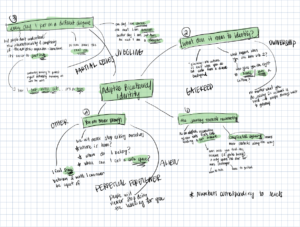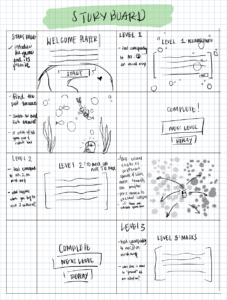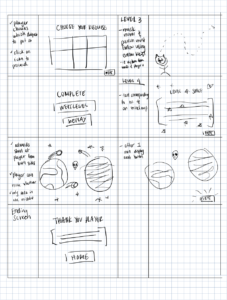PURPOSE & GOALS
The largest project I ever took on as an IMA student was a digital ethnography about Chinese adoption. The project involved conducting interviews and participant observation for 15+ individuals. Using the information I had gathered, I created a multipage interactive website with various p5 sketches embedded into it. With visual elements that complimented text and quotes from myself and other interviewees, the ethnography addressed 3 important aspects of the adoptee experience, family, culture, and self-identification. One of my goals for the site was to embed a game that helped show the user what it’s like dealing with biculturalism, but this was never completed. Thus, this game will be a continuation of my past project that addresses bicultural identity for Chinese adoptees.
But first, what is Biculturalism?
Biculturalism is describes the mix of cultures that an individual comes to know, either being a person of multiple races, or growing up in a culture that is different from that of their family. In the case of adoptees, they were born into the culture of their motherland, but are often taken away from their birthplace at a young age and have to grow up in the culture of their family (usually Western). I note that the experience is quite different from a Chinese or Asian person growing up outside their home country, as the added layer of an interracial or multinational family complicates the child’s access to both cultures.
As a result, adoptees often grow up very distant from Chinese culture, yet feel like they can never be accepted by the Western culture they were brought up in either. Adoptees are often labelled “whitewashed” if they do not like Chinese food, or don’t know any Mandarin, or they are labelled “ungrateful” if they have more Chinese friends than they do White friends, or are eager to learn about their heritage. The duality of these two boxes that adoptees are meant to fit into creates a feeling of Otherness and “Alienness”, on a level that is far more nuanced than the traditional Asian American experience.
INSPIRATION
Personally, I am not a gamer. I have never been one, and I don’t think I’ll ever become one. Most of the time I just don’t find the characters/plot that compelling, and rarely do they leave me with something to think about after the game is finished. Hence, if I were to play a game, I enjoy ones that are less focused on action and more on storytelling. One of my favorite games is an interactive roleplaying game called Dys4ia (Youtube video of gameplay can be found here). Dys4ia documents the experience of trans woman and video game designer Anna Anthropy. The game has multiple levels, each level deals with a different challenge of being a trans woman, such as buying new clothes, being misgendered, starting testosterone, etc. Her game is an example of how video games can be used as a method of digital storytelling, telling the story of marginalized identities. She also shows us the capabilities of media art being self-reflective, allowing the user to enter into a new perspective that is not their own and to learn about the struggles and experiences of others in a way that is vulnerable, intimate, and creative.
DESIGN
Inspired by Anthropy’s work, hoping to create an experience that not only educates the user about topics that are rarely represented, but also encourages them to question their understanding of what biculturalism is. In contrast to Anthropy’s game, my game will be much more text heavy, with some narration at the beginning of each “level”. In total, I plan to make 4 mini-games, or levels that symbolize aspects of my experience with Chinese and American culture as an adoptee.
To figure out exactly what I wanted to cover in the game, I began by creating a Mindmap that includes some of my thoughts and reflections about my own bicultural identity. The map is shown below: 
After completing the map, the next step was to figure out what the game play will look like.
STORYBOARD
I think figuring out how to represent the map into game form was the most difficult part. I knew that I didn’t need to create something super complicated to communicate the story, so the goal was to come up with games that while not novel in creativity, help demonstrate a complex metaphor. I also think it’s important to note that the “levels” are not an advancement of one another, but rather showcase the different phases of my journey as an adoptee. It’s really a cycle that is ongoing, and I find myself returning to these experiences at different moments in my life. Hence, each mini-game, while has an objective, does not involve any “winning” per say. Some actions cause the game to restart, and yet the player has the option to replay or continue to the next game at any time they wish. A “scene by scene” representation of the game is shown below:
I realize that this project is very ambitious, and I don’t know if I will be able to accomplish four mini-games, but this is my vision as of now.


